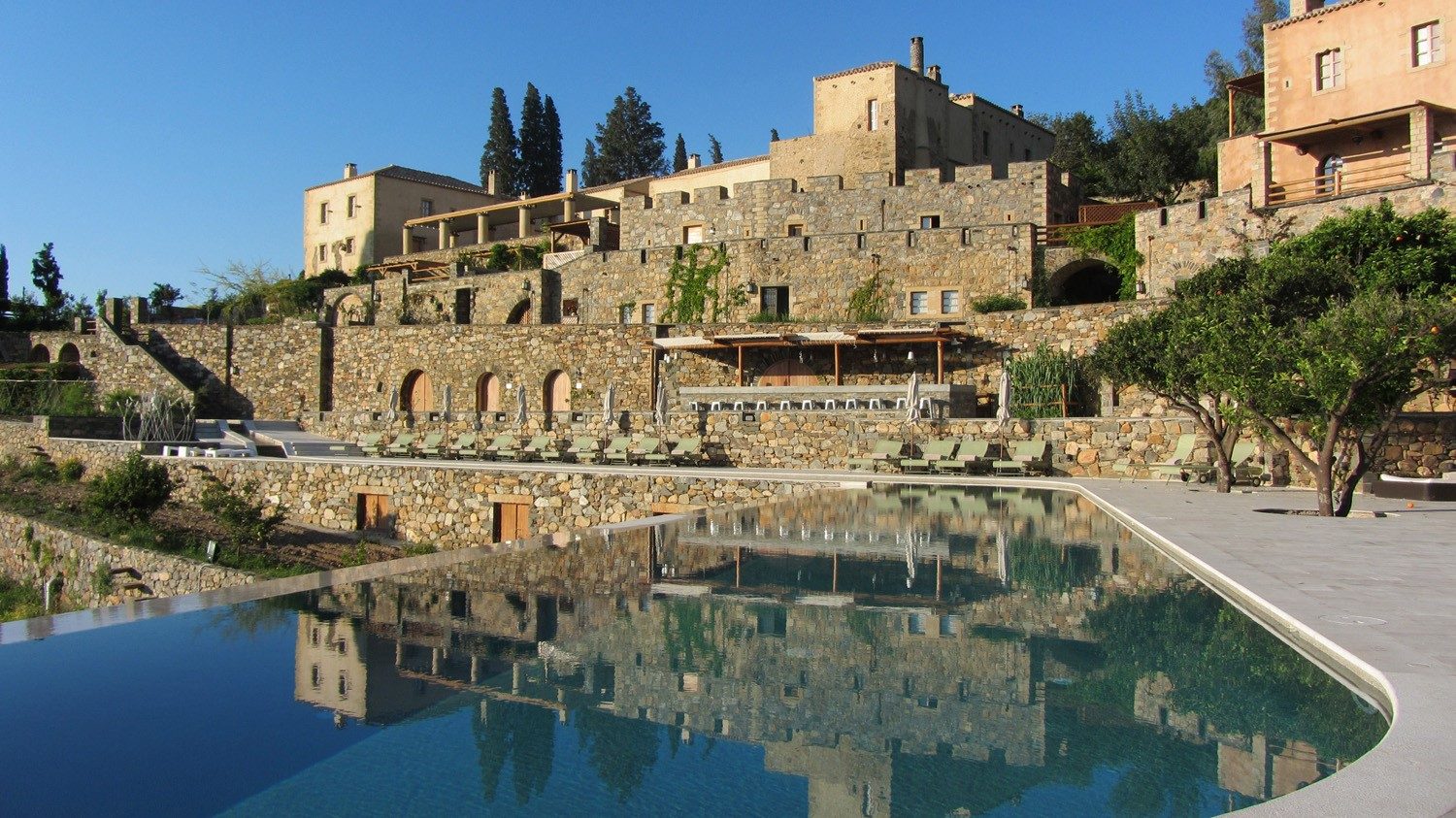What to watch out for and what should be avoided? What are the right steps for truly efficient SEO?
11 mins readInstead of introducing or attempting to document “Why SEO is an important factor for the recognition, demand and ultimately the profitability of the hotel business”, we will opt for the brilliance and boldness of figures.
According to most recent global statistics:
- 83% of hotel bookings begin from a search engine
- 92% of travelers “click” at least once, on one of the search results that appear on the first page, while,
- 65% of hotel revenue from the direct bookings channel, is based on SEO (this is the result from a recent Nelios survey of 220 hotel customers across Greece).
The above data proves, without any frills, what is now a common concurrence within the global tourism market: that the online image of a hotel is its primary selling tool, while SEO is its core selling strategy.
What is SEO?
The “Optimization of Websites for Search Engines”, often abbreviated as SEO (derived from the initials of “Search Engine Optimization”), essentially refers to a set of processes whereby a site is improved and optimized in order for it to rank higher positioning in SERP results (Search Engine Results Pages), for a related search. In actual fact, SEO is anything we do onsite and offsite, with the aim of displaying our website as high as possible on the search result rankings, when a user is searching for a phrase associated with our brand, or field of business. The ultimate goal of SEO – through the effort to make the website high ranking in search engines – is to increase the number of visitors to it through organic (unpaid) results.
The Strategic Steps for Effective HOTEL SEO
Step One
Proper search and selection of keywords. A correct SEO strategy should target and track the right keywords. We should always avoid generalizations and should prefer keywords that state what the hotel really is about. If for example, we are referring to a hotel in Mykonos, keywords like “hotels in Mykonos”, “holidays in Mykonos” etc., should be avoided as extremely generalized. On the other hand, depending on the identity of the hotel, words like “Mykonos family hotel”, “Mykonos gay-friendly hotel”, “spa hotel in Mykonos” or “beachfront hotel in Mykonos” are preferred for search engines. The more we are aware of our product ID and the more accurately we describe it, the easier it is to be identified by more niche markets through more niche keywords and thus resulting in easier, more effective ranking.
Step Two
Targeted distribution of the keywords we have chosen within our website. After we have strategically chosen which keywords we will use, we then have to distribute them in a user-friendly way across our website. Enough to persuade of the importance of this stage, is to consider that Google (the No1 search engine) does not evaluate our website as a whole, but it evaluates each of its different pages. So, we should aim at carefully selecting which page chases which keyword. And this is not an arbitrary process.
The reasoning behind this is that the content of each page, should “talk” about the keyword we have chosen for it. In other words, if a page has been “trapped” with a keyword, then the content on that page (the text, the photos, the videos) should resonate with that keyword. If we have strategically chosen to chase the keyword “Mykonos sea view suites”, we must put it on the page of this type of room. Because if someone looking for a sea view suite in Mykonos falls on this page, they will see exactly the content that interests them.
If on the contrary, the user is looking for this, and we send them – for example – to our homepage, they will quickly lose interest and leave our page because they will not have found what they were searching for. This will later de-rank our page, as it appears that we have misled the user. A practice that can simplify things at this point, is to ask ourselves “what would we like to read on a page that has been brought up by that specific or similar keyword”. Let’s understand what the user who searches for this keyword would like to see and read on a landing page, and consequently present them with that relevant content. And this is because what we ultimately want, is for the user to spend time on our page, to read it and stay on it.
If the user enters our page and understands that the content is not what they expect it to be, they will exit almost immediately and – worst and most damaging of all – then enter one of the other search engine results, seriously injuring any SEO efforts we have made. Search engines “capture” user behaviors and when they detect such reactions, they register them as negative. If we then add the fact that “users’ signals” (the sense that Google gets for a website depending on its users’ behavior towards it) are at the top of the SEO factor correlation list, it is easy to understand the importance of this step.
A significant increase in Galaxy Hotel Iraklio‘s direct bookings is achieved by Nelios, applying a holistic digital marketing model.
The online performance and, in particular, the stimulation of direct sales through the website (and thus increased profitability) was the key issue of the Hotel Galaxy Hotel Iraklio when it addressed Nelios and commissioned the company to provide its digital marketing services.
Nelios’ team then implemented an action plan with a holistic approach based on the following:
- Determining the hotel’s Unique Selling Points
- Creating a new conversion optimized website, based on the above
- Developing strategic content to enhance and fuel SEO, Google Adwords campaigns, the hotel’s Social Media, and international Travel Blogs
- Creating and utilizing e-mailing lists of real hotel visitors
- The absolute coordination of digital marketing actions with the hotel sales department
18 months later (based on published data covering January 2016 – August 2017 from Google Analytics and Webhotelier) and having implemented a holistic strategic digital marketing model, the results are impressive:
- 20% overall increase of hotel online reservations (Direct and OTAs)
- 120% increase in the hotel’s direct bookings
- 30% reduction in bookings between OTAs / direct bookings
Based on the same logic, Nelios’s team continues to implement its online design for Galaxy Hotel Iraklio in a three-year plan. The goal is to further increase online bookings and improve the distribution between direct bookings and OTAs even more.
Step Three
Very good optimization in the technical parts of the website. Good optimization in the technical part of a website must include:
- The correct meta tags (title tags, meta descriptions, etc)
- Creating links to all pages of the website
- Fast loading of pages
- Clean website structure and clear sitemap
- The absence of many and heavy graphics that can make it difficult or slow to navigate and downgrade the user’s experience
Special attention should be given to the title tag and meta description since these are the “tools” that will convince the user that they will find what they are looking for on our website, and thus visit them. Because, as it is important for a website to be displayed in the higher positions of search engine results, it is equally important to persuade the user to visit that website. If for example, our website appears on Google 100 times, but we have been clicked on only once (so we have a low click-through rate), this behavior adversely affects the “users’ signals” (No1 factor that affects SEO, as mentioned above) and is a problem for us.
Step Four
Fully integrated & thorough online profiling. We should use Google My Business, filling in our business contact information on the Google map correctly, so that in any search with our hotel name, our hotel’s contact details appear on the entire tab (the box that appears on the right side of the screen) with all the necessary business information and photos. Respectively, it is important to include them in local or international business directories too (such as the Yahoo directory).
Step Five
Links building. This is the most difficult phase of implementing the SEO strategy since we are called to find links from third sources that lead to our site.
These sources may be electronic forms of Media (the digital versions of many classic media channels such as CNN, CNTraveler, Independent, etc.), travel blogs and/or review sites. Links building is a process that takes a lot: time, effort, patience, persistence, continuity and consistency, communication, contacts with media and bloggers abroad etc. Therefore, this process is usually assigned to specialized digital marketing companies.
5 + 1 Myths about SEO
- Almost no new website goes up “magically and immediately” to the high positions of the search engines. Surveys have proved that only 5.7% of new websites are the “lucky” ones that are placed in the top 10 positions of relevant search engine results, within the first year of their appearance
- Google ads do not enhance, in any case, the ranking of a website in organic (unpaid) results
- Purchased links to our website do not have a positive effect on our SEO
- Keyword stuffing, which is the use of too many keywords, is also not SEO effective
- The launch of a new website for our hotel business does not affect existing SEO scores if of course, the correct procedure is followed, to retain the existing ranking when moving from the old website to the new one
- Keywords included in the domain, the once number 1 sought after strategy for strong SEO results, is now ranked as being a harmful SEO practice
MUST DO! MUST HAVE!
In any case, a blog is a MUST! Search engines “reward” websites that are continually updated and are constantly refreshing their content. The website of a hotel, however, is not a suitable platform for frequent changes to its content. The solution to this problem is the creation of a blog, which can offer this extra new (and constantly refuelled) content that search engines are looking for.
Social media: The intense activity of social media in hotels (likes, shares, re-tweets, reviews, reposts) positively affects the SEO of the hotel website.
But… To have good social media activity:
- We must have good engagement,
- a good community,
- and a good interaction with our customers in our social media, instead of sourcing bought.
And in order to have our customers actively interacting with our social media, we need email marketing (whether online or offline).
All the above, in fact, indicate and concentrate Nelios’ entire business philosophy and outlook. That, effective SEO strategy is not achieved when we “chop” the digital actions that concern our hotel, but when we apply a 360º logical strategy across our online presence.
The photos used in this article are from Nelios’s collaborating hotels in Greece
- Conversion Optimised Websites
- Creative Hotel Web Design
- Digital Marketing Strategy and Planning
- Search Engines Marketing (SEO, PPC)
- Content Marketing (Social Media & Travel Blogging)
- Data Analytics & Online Sales Audit
- Corporate Identity
The elements that ensure Nelios’ success are its skilled human resources, the encouragement of innovation and the use of state-of-the-art technologies.









